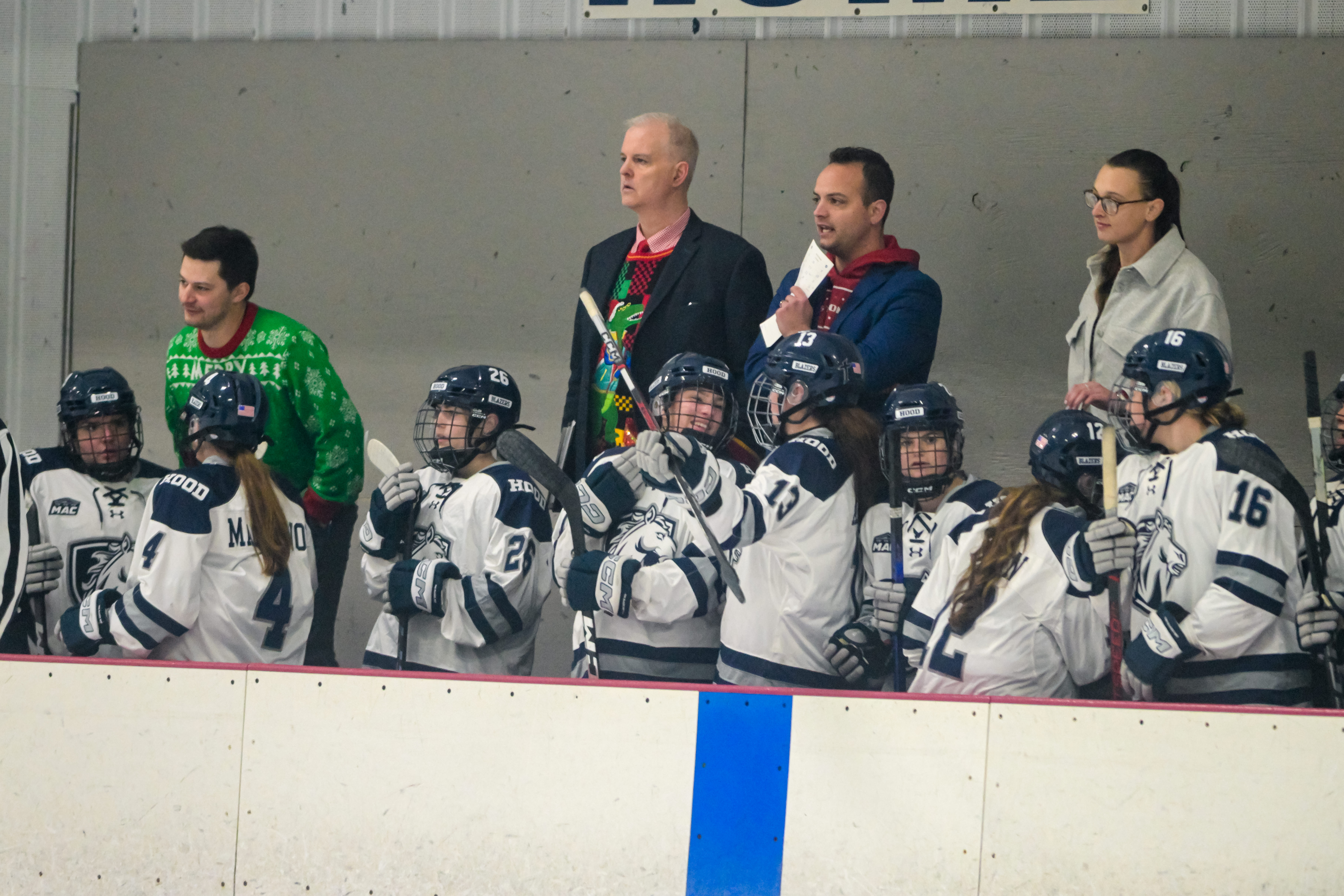Timothy Coffin | Program Director and Ice Hockey Coach

"Hood College presents a unique opportunity to blend academia with real-world applications. The College’s commitment to student success, personalized education and innovation aligned well with my teaching and research goals."
Q&A
Program
- Health Informatics (M.S., Certificate)
Department
- Nursing
Timothy P. Coffin is director of the health informatics program as well as the assistant women’s ice hockey coach for analytics at Hood College. He is CEO of Celtiq, LLC, a government consulting company, and Conquior, Inc., a company focused on AI-driven healthcare solutions. His career spans multiple startups, government consulting and academia. He has provided strategic guidance to agencies such as NIH, FDA, the Department of Homeland Security and the Department of Defense, contributing to advancements in AI applications for health research, disability evaluation and clinical data analysis.
As a faculty member, do you have a certain mindset, theory or teaching style?
As a faculty member, I believe in a hands-on, problem-solving approach to learning. My teaching philosophy integrates real-world case studies, AI applications in healthcare and ethical considerations in technology. I emphasize critical thinking, encouraging students to engage with emerging technologies and informatics challenges in healthcare. My course often mirrors my industry experience, preparing students to engage with emerging technologies and informatics challenges in healthcare. I truly believe in the dignity of the students and treating them as I would my own family.
What made you choose to teach at Hood College?
Hood College presents a unique opportunity to blend academia with real-world applications. The College’s commitment to student success, personalized education and innovation aligned well with my teaching and research goals. Additionally, Hood College’s interdisciplinary approach allows for collaborations between health sciences, computer sciences, informatics and AI, making it an ideal environment to mentor students and develop impactful research.
What got you into coaching ice hockey?
My love for hockey started early when I was 2 years old. I have been playing hockey for 56 years and coaching for 25 years. When I got the opportunity to coach a NCAA Division III women’s ice hockey team at Hood College, I seized it. Beyond the game, I am very passionate about mentoring student-athletes, helping them develop discipline, teamwork and leadership qualities that translate into both sports and professional careers. Coaching also allows me to stay connected to team dynamics and sports analytics, blending my AI expertise into strategy development.
How do you balance your job as a director of the health informatics program and a coach for the women’s hockey team?
Juggling academia and coaching requires effective time management and a passion for both roles. I approach this challenge by maintaining structured schedules, leveraging technology for efficiency and fostering strong support networks in both areas. As a CEO I have developed the ability to analyze data, delegate responsibilities and prioritize tasks that help me successfully balance my work at the university, my companies, and in informatics and athletics.
Are there any skills that carry over between the jobs?
- Data analysis and strategy: Just like AI-driven insights help optimize healthcare decisions, analytics play a role in hockey performance metrics and game strategy.
- Leadership and mentorship: Both roles require the ability to teach, inspire and guide individuals toward success.
- Decision-making under pressure: Whether it’s designing AI models for healthcare or making real-time coaching decisions, the ability to assess situations quickly is crucial.
- Team collaboration: Working with students, faculty and researchers is similar to coaching a team. Tt is about building a culture of success and ensuring everyone understands their role.
Any other relevant or interesting information that you would like to share?
I am a U.S. Air Force veteran and a veteran of five startups. I have worked on AI models for suicide risk detection, rare disease identification and opioid addiction analysis.
Additionally, my wife Libby Coffin is a jam champion at the Virginia State Fair and will be a judge next year. I love to fish and often go fly fishing. I recently got a boat, “The Great White Otter,” in tribute to my late puppy, Beignet. I have four children who have graduated college. I have two dogs, a Bichon named Blue and a Havanese named Camo, who keep my life interesting.
Are you ready to say Hello?
Choose a Pathway
Information will vary based on program level. Select a path to find the information you're looking for!
